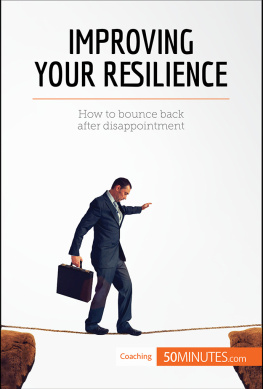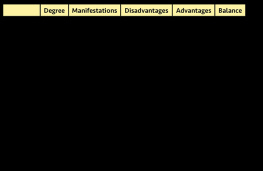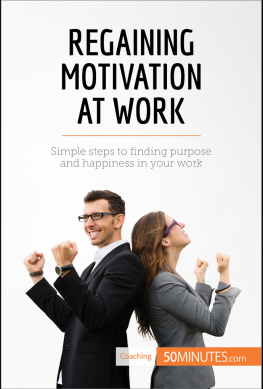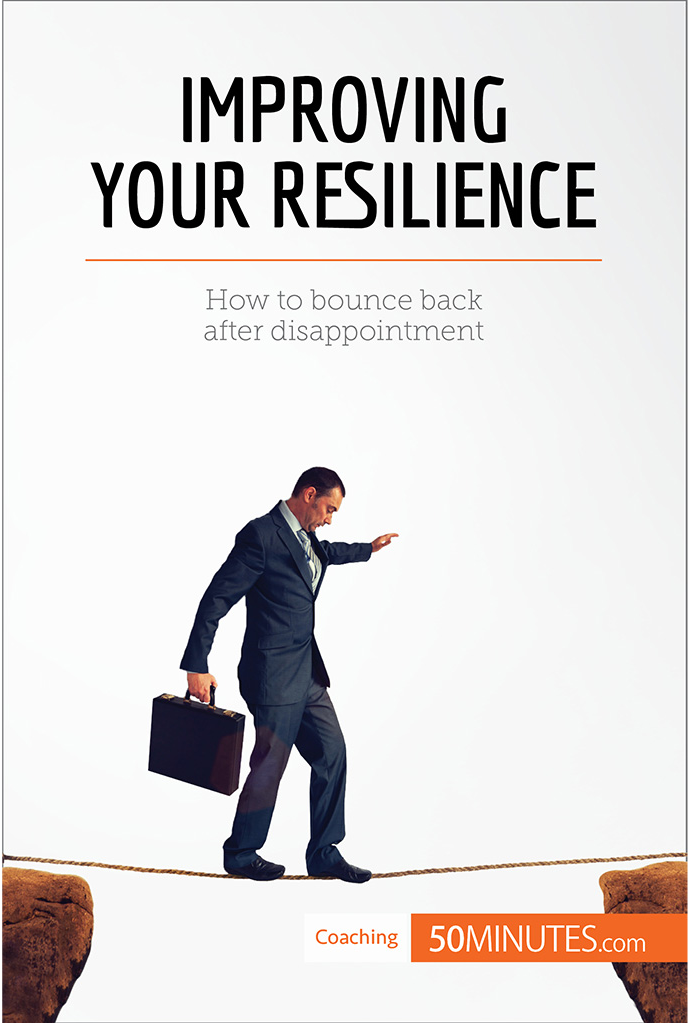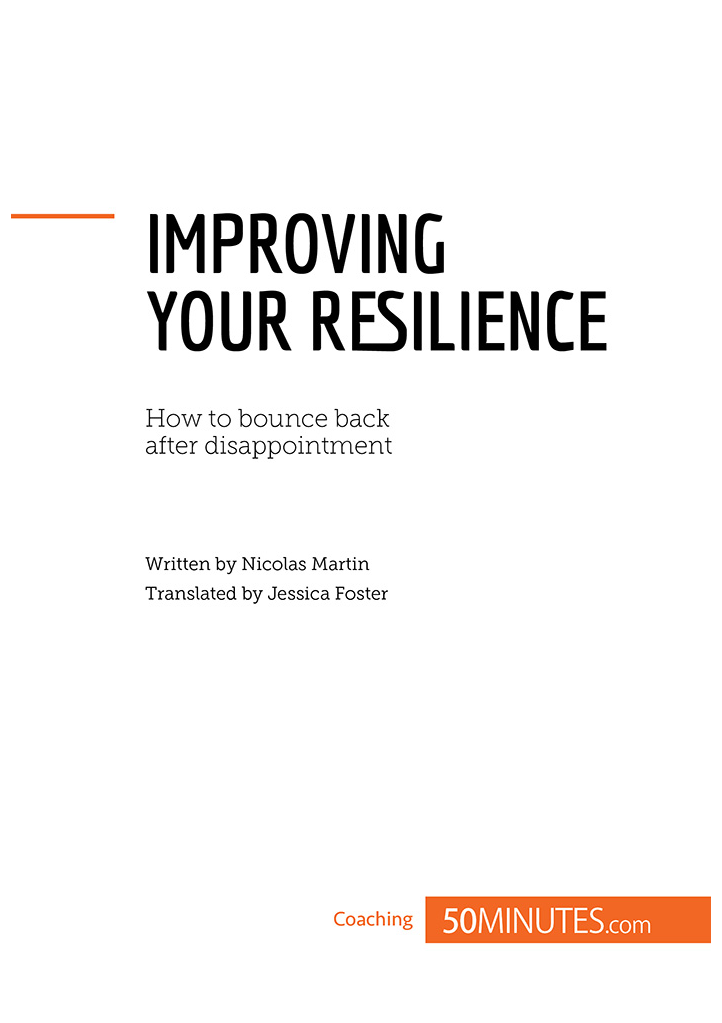Resilience
- Issue: how do I develop or strengthen my resilience?
- Uses: although overcoming difficult moments sometimes seems impossible, every individual has, to different extents, the strength to continue making progress and to be happy. And since difficult moments in life are inevitable, it is better to learn how to use this strength and develop resilience, starting right now.
- Professional context: teamwork, personal management, stress management, etc.
- FAQs:
- How is resilience different from coping or empowerment?
- What are the main mechanisms in the resilience process?
- How can I seek support from those around me without becoming unbearable?
- Can everyone be resilient, or is resilience something you either have or you dont?
- Can we completely heal after suffering?
- Is a resilient person more likely to succeed professionally?
What doesnt kill you makes you stronger, as the well-known saying goes. Currently, a very small circle of experts are working on the concepts of resilience and coping with suffering.
Every individual is supposed to have a natural predisposition as to their ability to deal with difficulties in their lives. This naturally manifests itself differently according to each person, as every instance of suffering is unique. Whether it is the loss of a loved one, an attack, a war, a natural disaster or a long period of unemployment, a break-up or a violent argument with a loved one, there is no hierarchy of suffering for the simple reason that every individual is different. Some people can find it very difficult to recover from a break-up, yet manage physical assault much more easily than others. The thing that everyone shares is the pain that results from it.
Living a life without difficult moments is a utopian vision, as suffering, whatever its cause, is simply inevitable. For this reason, it is essential to learn to deal with suffering and to get it under control and master it as much as possible. The cause of the pain is not particularly important, everyone must find in themselves the force to bounce back and keep going, as life continues on many levels, including professionally.
As work plays a central role in our society, it is helpful to think in terms of it when considering this process of resilience and the ways in which it is possible to reinforce it, not because you have to keep working as if nothing happened, but because you owe it to yourself to keep making progress in the face of the good and the bad things that life has to offer you. Do not be resigned and within these thoughts and this advice you will find an approach that you will be able to adopt and that will help you to deal with difficult times with more flexibility. Some challenges seem difficult to overcome; others, which might however seem more traumatic to most people, can be managed more easily. And that is exactly what happened to me. I found it much more difficult to deal with criticism of a long, difficult piece of work than with physical assault.
I was unlucky enough to be the victim of an assault when I was returning home one evening during the week. I say unlucky because I have realised that I was simply in the wrong place at the wrong time. I had to go to hospital alone, it was already late and the police escorted me to Accident and Emergency. But during the days that followed, I was surrounded by people, in a way I could have never imagined. A flood of loved ones came to see me, and made me want to cry even more.
I was not particularly traumatised after the event. I didnt really think about it, perhaps too occupied by the last few weeks of my final year of studying. I remember telling myself that it had to happen one day, and that it had now happened, and that it was therefore unlikely to happen again. This was something of a relief, and I told myself that I had reacted well at the time. I was almost pleased with myself, as the situation could have been much more serious and I could have ended up being much more traumatised.
I think that I had started from a good basis at the beginning. I went through a stage of denial, but above all I turned the matter around in many ways, and humour played an important role.
I believe that for every event that causes suffering, it is imperative to adopt a detached attitude, but this alone is not sufficient. Having the right people around you is necessary, as well as not allowing suffering to surpass laughter. Obviously, some instances of suffering leave little room for humour at the beginning, but above all, they should never become a taboo subject, as this is what substantially prevents any resilience process.
(Anonymous statement)
Being a resilient worker: the basics
The concept of resilience and general points
Origin
The term resilience was originally used in the context of physics, specifically material sciences such as metallurgy: it refers to a metal that can resist high impact and return to its original state after being beaten out of shape.
It is an interdisciplinary concept and has been borrowed by other disciplines, such as computer science, biology, mental health, humanities (such as psychology and sociology) and medicine. They have all kept the essence of the basic definition of the concept, namely the ability to restore original properties after an upset of some kind, while adapting it to the specifics of each discipline. Consequently, the term is sometimes used indiscriminately, and experts struggle to agree on one definition that can satisfy everyone.
In Europe, the concept was first used in psychology in the 1990s, mainly by psychiatrists or child psychiatrists. One of the most prominent voices on the subject is Boris Cyrulnik, a French psychiatrist, whose work Un merveilleux malheur (Miraculous Unhappiness), published in 1999, was the first to contribute to the exposure of resilience.
Although it has been studied within the scientific community for several decades, the concept itself is therefore relatively recent, while its application in psychology only became truly popular in the 2000s.
Definition
Generally speaking, the word resilience has been adopted in different domains to refer to the ability to bounce back or tolerate shocks without being destroyed. Its psychological definition is based on the definition suggested by Manciaux, Vanistendael, Lecomte and Cyrulnik in 2001, which refers to the ability of a person or group to continue making progress and planning for the future despite traumatising events or difficult living conditions.
In other words, resilience refers to the personal quality that every individual possesses and that allows them to overcome a difficult or traumatic event, and to continue to build their lives and find fulfilment in the face of adversity.
Resilience, a process
We need to picture resilience as a process. Indeed, even if it initially refers to a state and can be seen as a character trait or a result of other factors in several contexts, when applied to individuals, we are generally talking about progressive, non-definitive change. An individuals capacity for resilience is constantly reassessed, as everyone changes throughout their lives, just as each of lifes challenges is different; all these changes are part of a process.

